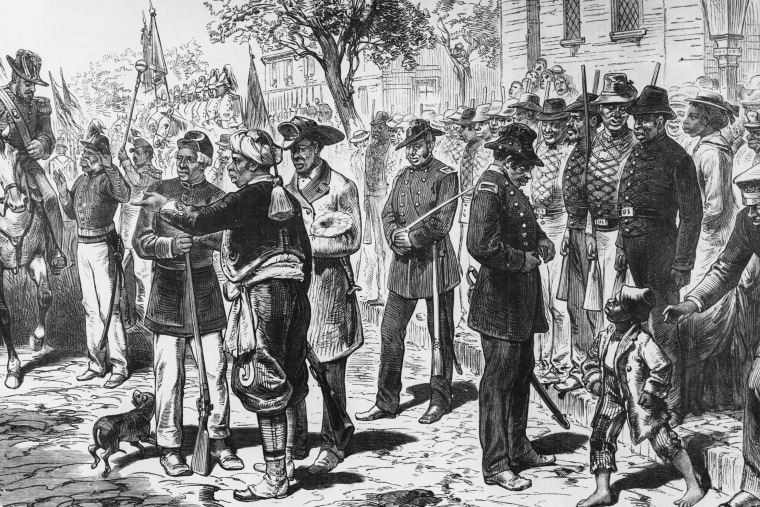This year, people all over the United States will celebrate the third federal Juneteenth holiday. But the journey to Juneteenth goes back more than a century.
It was Sept. 22, 1862, when then-President Abraham Lincoln decreed:
That on the first day of January in the year of our lord, one thousand eight hundred and sixty three, all persons held as slaves within any state, are designated part of a state, the people whereof shall then be in rebellion against the united states shall be then, thenceforward, and forever free; and the executive government of the United States, including the military and naval authority thereof, will recognize and maintain the freedom of such persons, and will do no act or acts to repress such persons, or any of them, in any efforts they may make for their actual freedom.”
Those words are taken from the Preliminary Emancipation Proclamation, issued following the Union Army’s victory at the brutal Battle of Antietam in Maryland. These words served as Lincoln’s formal notification to the Confederacy of his intention to free all enslaved people in the rebellious states. One hundred days later, on Jan. 1, 1863, Lincoln kept his word and issued what we know today as the Emancipation Proclamation. And, with the adoption of the 13th Amendment in 1865, the abolishment of slavery was codified in the United States Constitution.
After the Emancipation Proclamation, the good news of freedom spread across the country.
However, it wasn’t until more than two years later, on June 19, 1865, that this “good news” made its way to Galveston, Texas. It was then the last enslaved people in Texas learned they had actually been freed from the bondage of slavery two years prior.
The following year, in 1866, Black Texans became the first to recognize June 19 as “Juneteenth.”
A century-and-a-half later, on June 17, 2021, President Joe Biden signed the Juneteenth National Independence Day Act, officially making Juneteenth a federal holiday. It is because of the work of many people like the late Al Edwards, a civil rights activist and Texas state legislator; the late, great Rep. John Lewis and Ms. Opal Lee, the “grandmother of Juneteenth,” that Americans everywhere now recognize the significance of the momentous date.
But in our current political climate, Juneteenth feels a little heavier. There is an ongoing movement to strike this very history from our public discourse. That movement manifests itself through travesties like book bans, the removal of African American studies in public schools and threats against teachers just trying to educate their students.

According to World Population Review, 18 U.S. states currently have bans on some form of Black history instruction; attempts to pass such bans have been made in all but six states. These bans have real consequences. For example, last year a South Carolina high school teacher had to remove a classroom discussion on Ta-Nehisi Coates’ memoir “Between the World and Me” after complaints that it violated a state law prohibiting instruction on controversial topics related to race.
More than 150 years ago, Frederick Douglass, a celebrated author, activist and leader in the abolitionist movement, spoke before a crowd in our nation’s Capitol saying, “where justice is denied, where poverty is enforced, where ignorance prevails, and where any one class is made to feel that society is an organized conspiracy to oppress, rob and degrade them, neither persons nor property will be safe.”
These words ring as true today as they did in 1866 when he spoke them. They can provide direction as a new generation of Americans chart their path toward a more perfect union. But in South Carolina, Texas, Florida and many more states across our nation, these words are considered dangerous, and even teaching them is now illegal.
I can think of nothing more dangerous than the frontal assault on our nation’s true history.
There is no Vice President Kamala Harris or Justice Kentanji Brown Jackson, or President Barack Obama without Frederick Douglas and the people of Galveston, Texas. The journey to Juneteenth and its impact is American history.
Its teaching and telling must be preserved and protected.
This is an adapted excerpt from the June 17 episode of "Symone."
